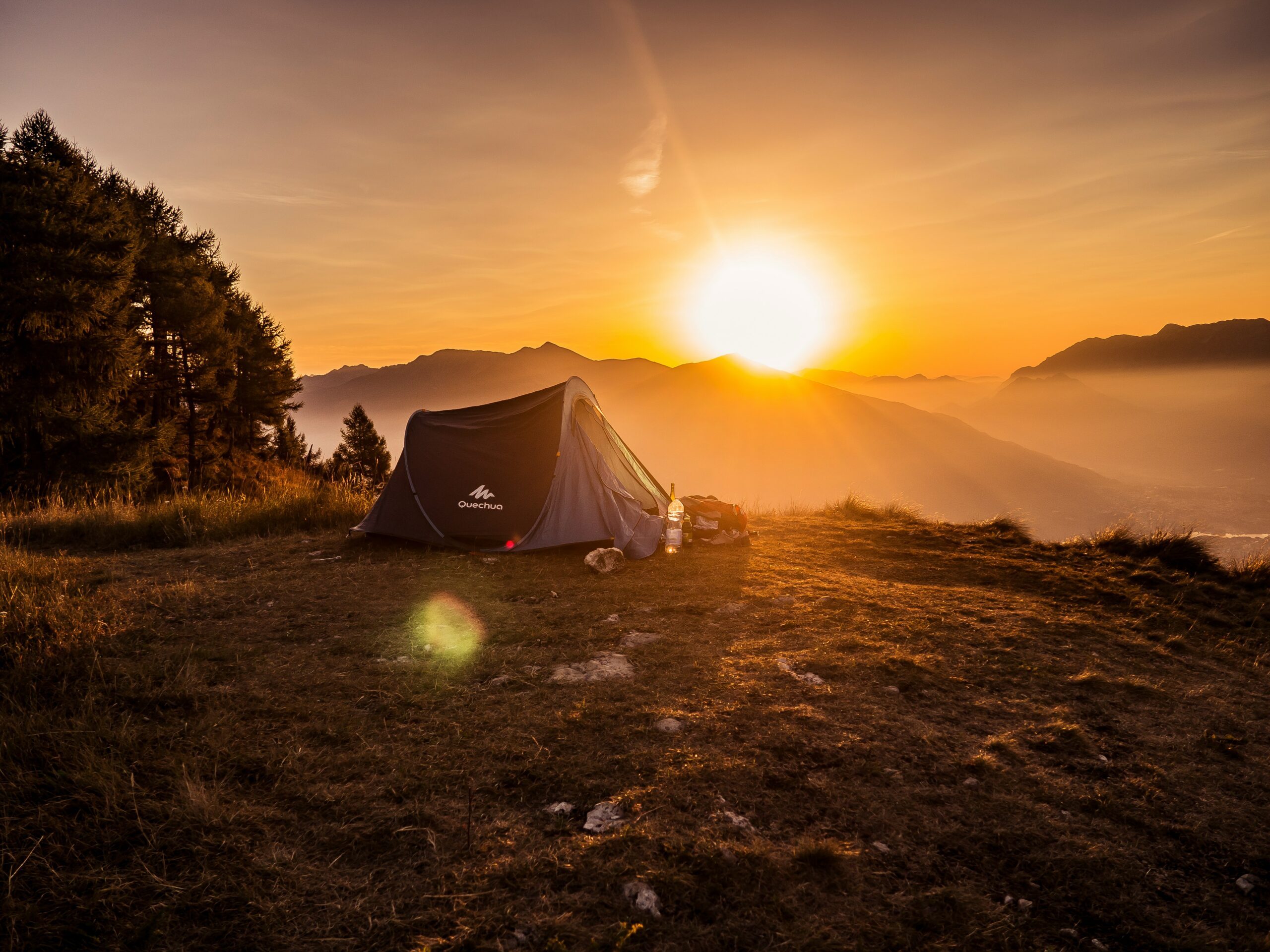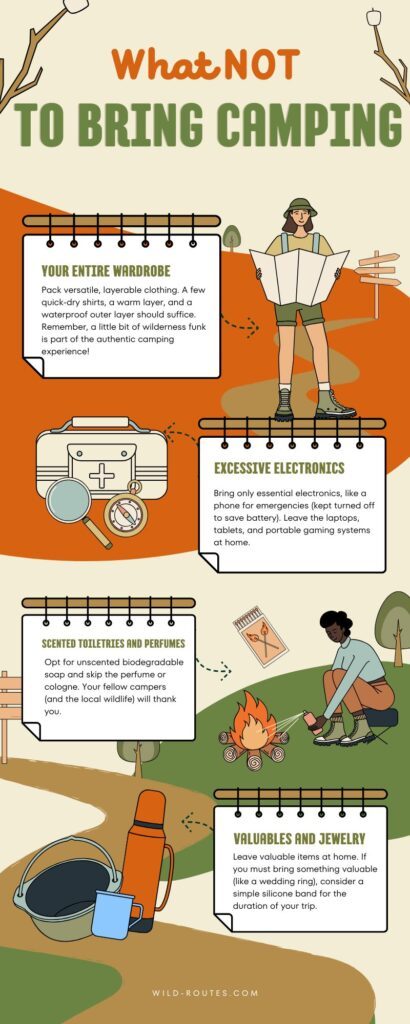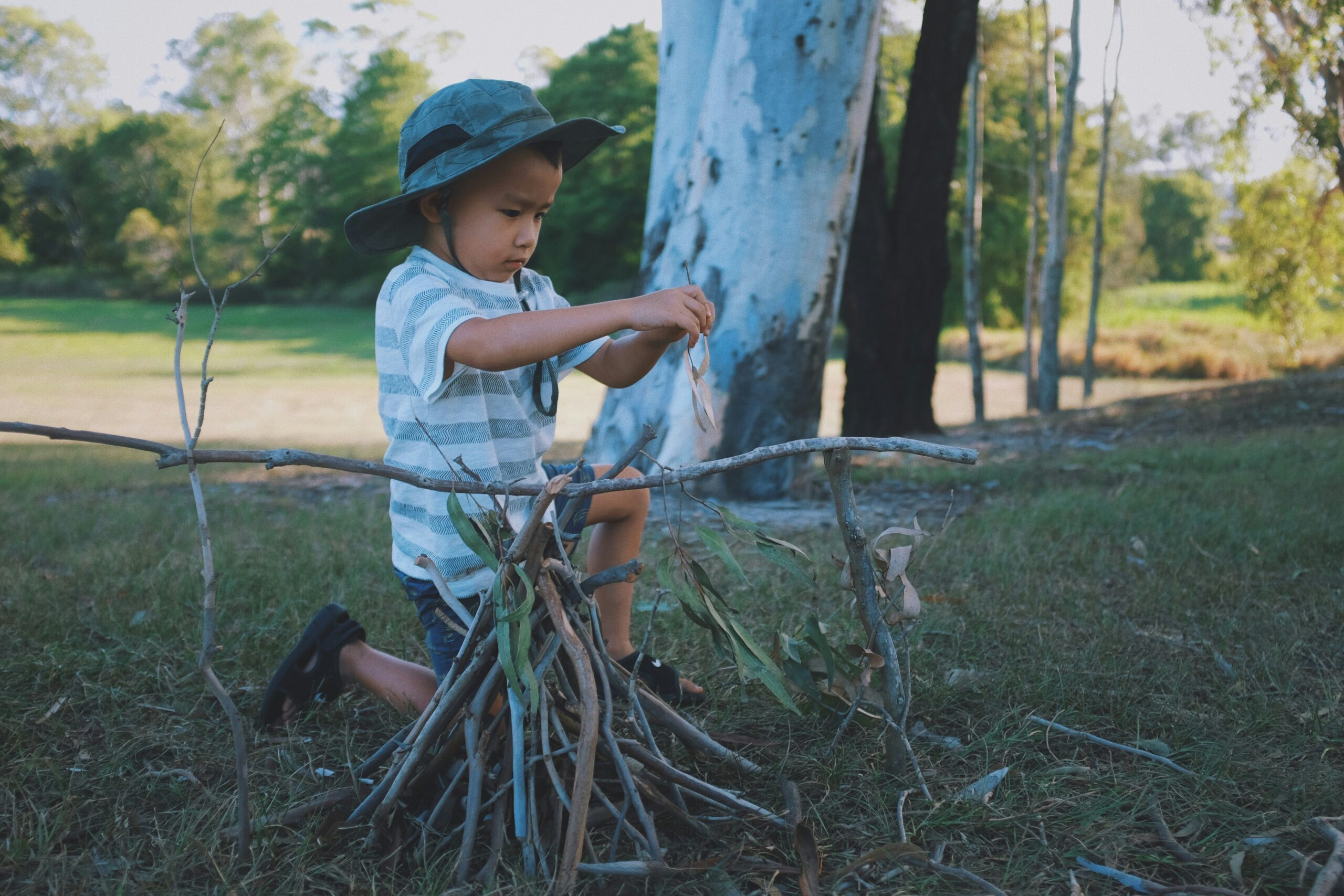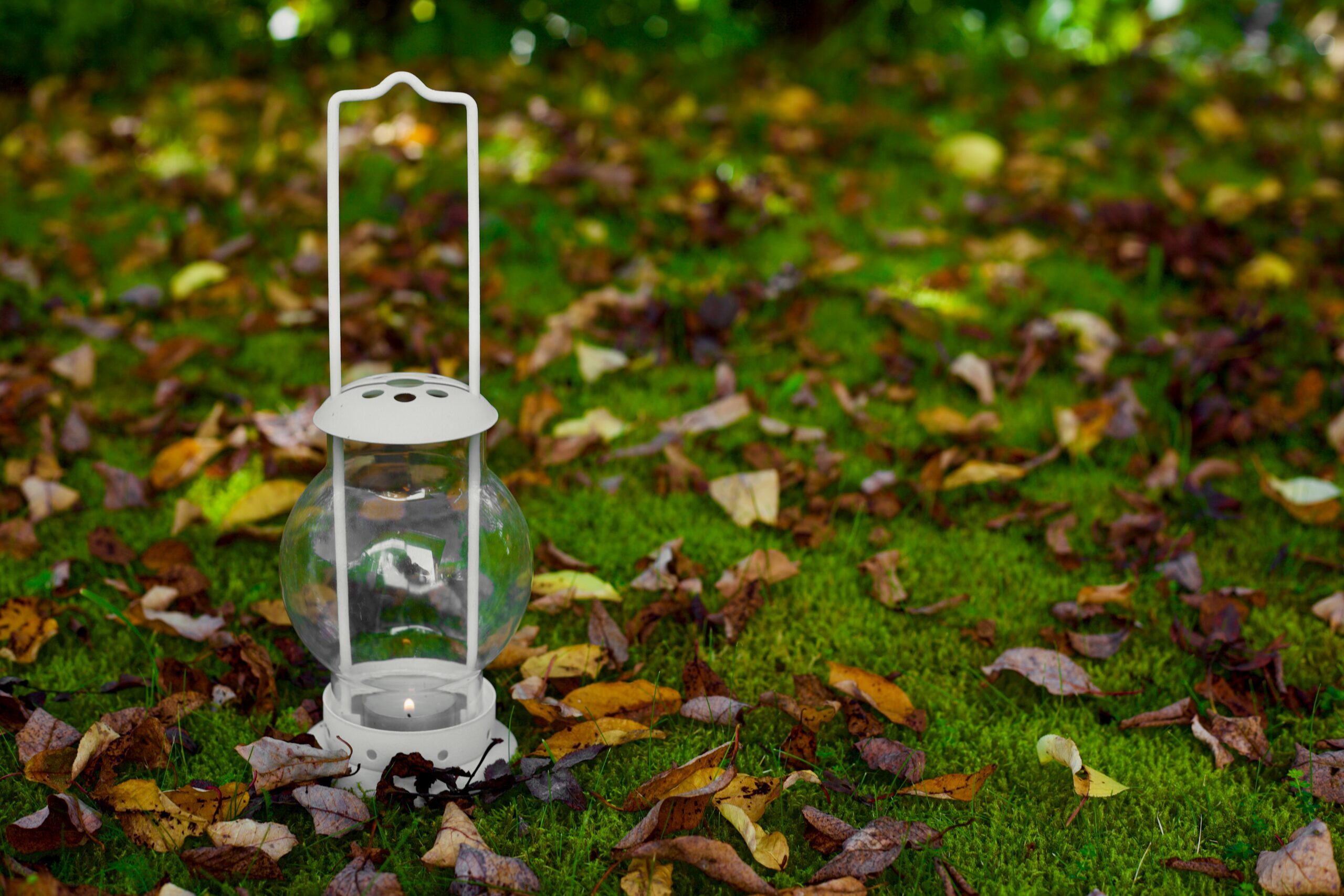
You’ve got your tent, your sleeping bag, and enough trail mix to feed a small army. But before you zip up that overstuffed backpack, let’s talk about what you shouldn’t bring on your camping adventure. Because sometimes, the key to a great camping trip isn’t what you pack, but what you leave behind. So, gather ’round the metaphorical campfire, and let’s dive into the ultimate “don’t-pack” list for camping!
Look, we get it. Mother Nature can be fickle, and you want to be prepared. But unless you’re planning a forest fashion show, leave the extensive wardrobe at home.
What to do instead: Pack versatile, layerable clothing. A few quick-dry shirts, a warm layer, and a waterproof outer layer should suffice. Remember, a little bit of wilderness funk is part of the authentic camping experience!

While gourmet camp cooking can be fun, lugging along your entire set of cast-iron skillets and that fancy espresso machine might be overkill.
What to do instead: Stick to the basics. A pot, a pan, and some basic utensils will cover most of your cooking needs. And for coffee? Embrace the simplicity of instant coffee or a lightweight pour-over setup.
Camping is about unplugging and reconnecting with nature, not creating a mobile office in the woods.
What to do instead: Bring only essential electronics, like a phone for emergencies (kept turned off to save battery). Leave the laptops, tablets, and portable gaming systems at home. Trust us, the tweets of actual birds are far more entertaining than anything on Twitter.
Unless you’re trying to attract every bear within a 10-mile radius, leave the scented products at home.
What to do instead: Opt for unscented biodegradable soap and skip the perfume or cologne. Your fellow campers (and the local wildlife) will thank you.
Glass and the great outdoors mix about as well as oil and water. They’re heavy, fragile, and can be dangerous if broken.
What to do instead: Use plastic or metal containers for your food and drinks. They’re lighter, more durable, and won’t leave shards in the campsite if dropped.
While it’s important to have enough sustenance, packing for a zombie apocalypse when you’re going on a weekend camping trip is unnecessary.
What to do instead: Plan your meals ahead of time and pack accordingly. Remember, carrying excess food in and unused food out is no fun. Plus, overpacking food can attract unwanted animal visitors.
The squirrels don’t care about your designer watch, and that diamond ring won’t help you start a fire.
What to do instead: Leave valuable items at home. If you must bring something valuable (like a wedding ring), consider a simple silicone band for the duration of your trip.

Those individual plastic water bottles and snack packs might seem convenient, but they’re terrible for the environment.
What to do instead: Bring reusable water bottles and containers. Not only is it better for the environment, but it also reduces the amount of trash you’ll have to pack out.
Your favorite fashion boots or flip-flops might look great in photos, but they’re not ideal for hiking or navigating a campsite.
What to do instead: Pack sturdy, comfortable shoes appropriate for your planned activities. Hiking boots for trails, water shoes for rivers, and a pair of comfortable camp shoes should cover your bases.
While bringing some reading material is great, that 1000-page epic fantasy novel might be a bit much.
What to do instead: Bring one or two books you’ll actually read, or consider a lightweight e-reader if you’re an avid reader. Better yet, spend your time reading the book of nature!
Yes, they’re comfortable, but they’re also bulky and impractical for camping.
What to do instead: Use a small camping pillow or stuff a fleece jacket into a stuff sack for a makeshift pillow. Your neck will adjust, we promise.
Open flames and tents don’t mix well. Plus, scented candles can attract wildlife.
What to do instead: Bring battery-powered lanterns or headlamps for lighting. They’re safer and more practical.
Unless you enjoy doing laundry in a creek, leave the whites at home.
What to do instead: Stick to darker colors that won’t show dirt and stains as easily. Your Instagram photos might not be as crisp, but your laundry load will thank you.
If you’re expecting maid service, turn-down service, or a mint on your pillow, you might be in for a rude awakening.
What to do instead: Embrace the rustic nature of camping. The dirt, the inconveniences, and the challenges are all part of the experience. Adjust your expectations and you’ll have a much better time.
Remember, the joy of camping often comes from simplifying our lives and connecting with nature. By leaving behind unnecessary items, you’re not just lightening your load physically, but mentally as well. You’re creating space for new experiences, unexpected adventures, and the simple pleasures of the great outdoors.
So, as you prepare for your next camping trip, take a moment to consider each item you pack. Ask yourself: “Do I really need this?” If the answer isn’t a resounding yes, it might be better left at home.
Happy camping, and may your backpack be light and your experiences be heavy!
Now go forth and camp, you minimalist outdoor enthusiast!



